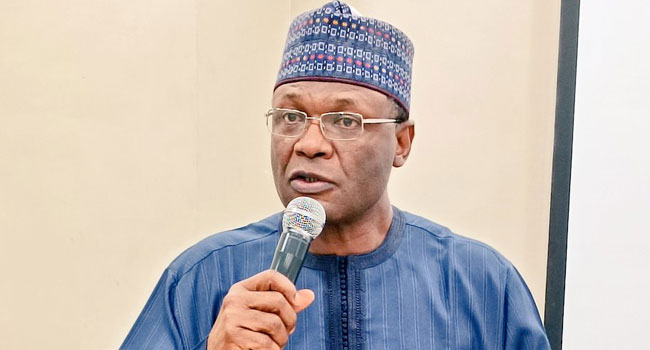The presidential candidate of the Peoples Democratic Party (PDP), Atiku Abubakar, has explained how the Independent National Electoral Commission (INEC) allegedly deducted from his scores during the presidential election to “facilitate” Bola Tinubu’s victory.
Nigeria held its presidential election on 25 February, but the poll outcome is being contested by the key contestants in the race.
Mr Tinubu, president-elect and candidate of the All Progressives Congress (APC), was declared winner of the election after polling 8.8 million votes to beat his closest challenger, Atiku Abubakar.
But in petition filed on Tuesday at the Presidential Election Petition Court in Abuja, Atiku said the electoral umpire “deliberately and massively deducted from” his “scores to facilitate” the return of Mr Tinubu.
In the petition filed by Atiku’s legal team led by Joe-Kyari Gadzama, a Senior Advocate of Nigeria (SAN), Atiku and the PDP who jointly sued INEC, Mr Tinubu and APC as co-petitioners, vowed to “lead oral and documentary evidence” at the court to prove their case.

Atiku contended that the Bimodal Voters Accreditation System (BVAS) machines that were meant to upload election data and transmit election results in real-time to the electronic collation system and IReV portal, were manipulated by INEC to “intercept the results, and filter them before releasing same to the IReV portal.”
Challenging the outcome of the presidential election, Atiku and PDP said INEC did not comply with its own rules and guidelines for the conduct of the presidential election by failing to transmit election results in real-time from polling stations across Nigeria to its election collation system.
The petitioners equally argued that there was substantial non-compliance with the provisions of the Electoral Act and the Nigerian constitution in the conduct of the presidential poll.
Atiku noted that INEC’s attribution of its failure to electronically transmit results from polling units to the election collation system to “glitches” was untenable.
Contrary to INEC’s claim, Atiku argued that “there was no failure of ‘server,’ as the server was cloud-based and virtual.”
To prove his case, Atiku said he would lead expert evidence to “show that the ‘server’ being cloud-based, in event of any unlikely challenge, Amazon Web Service, would have seamless switched to another server without hitch, being autoscaling groups with multiple network reception and offline upload options.”
South Africa firm and Globacom to testify in court
To provide expert witnesses in the deployment of technology for the conduct of the presidential election, Atiku has disclosed that he would subpoena a South African company, Kaspersky Endpoint Security.
Kaspersky Endpoint Security provided system security for the BVAS machines and electronic transmission system deployed by INEC during the polls.
In his filings before the court, Atiku said the South African firm would be called to “produce relevant documents and data as well as testify on the system security.”
The petitioners also indicated that they would subpoena Nigeria’s telecommunications giant, Globacom Nigeria Limited, the Internet provider for the system deployed by INEC during the election.
Atiku and the PDP accused Globacom Nigeria Limited of “disconnecting Internet from the BVAS machines before transmission” of data to the election collation system.
Another firm Atiku intends to subpoena is the Abuja-based Infrastructure Concession Regulatory Commission (ICRC).
He said the company conducted due diligence in the electronic transmission system deployed by INEC “using full business case that had inputs from Emperor Technology Limited and issued ‘Certificate of Objection’ for the system to be deployed.”

Atiku further contended that when INEC chairman, Mahmood Yakubu, declared Mr Tinubu president-elect in 1 March in Abuja, “the entire (election) results and (voters) accreditation data had not been transmitted and uploaded to” INEC’s “electronic collation system.”
The petitioners said the would rely on forensic experts and ICT experts and data amongst others from the conduct of the election to establish their case.
“The petitioners shall also call evidence of statisticians, forensic examiners, fingerprint and ICT experts at the hearing of the petition to establish that the figures…awarded” Mr Tinubu “were not product of valid votes actually cast,” the court filings said.
Atiku added that what INEC did during the presidential election was “mere allocation” of votes to the president-elect. He said the summation of the results declared is inconsistent with and cannot be reconciled with the number of duly accredited voters.”
PREMIUM TIMES reported that Atiku based his complaint on four grounds of non-compliance with the provisions of the Electoral Act and the constitution by INEC in conducting the election, Mr Tinubu’s failure to secure majority votes from two-thirds of states of the federation and the FCT, and the president-elect’s alleged non-qualification to contest the election.
Consequently, Atiku urged the court to either declare him Nigeria’s president or order a fresh poll which Mr Tinubu would be excluded from participating in.
